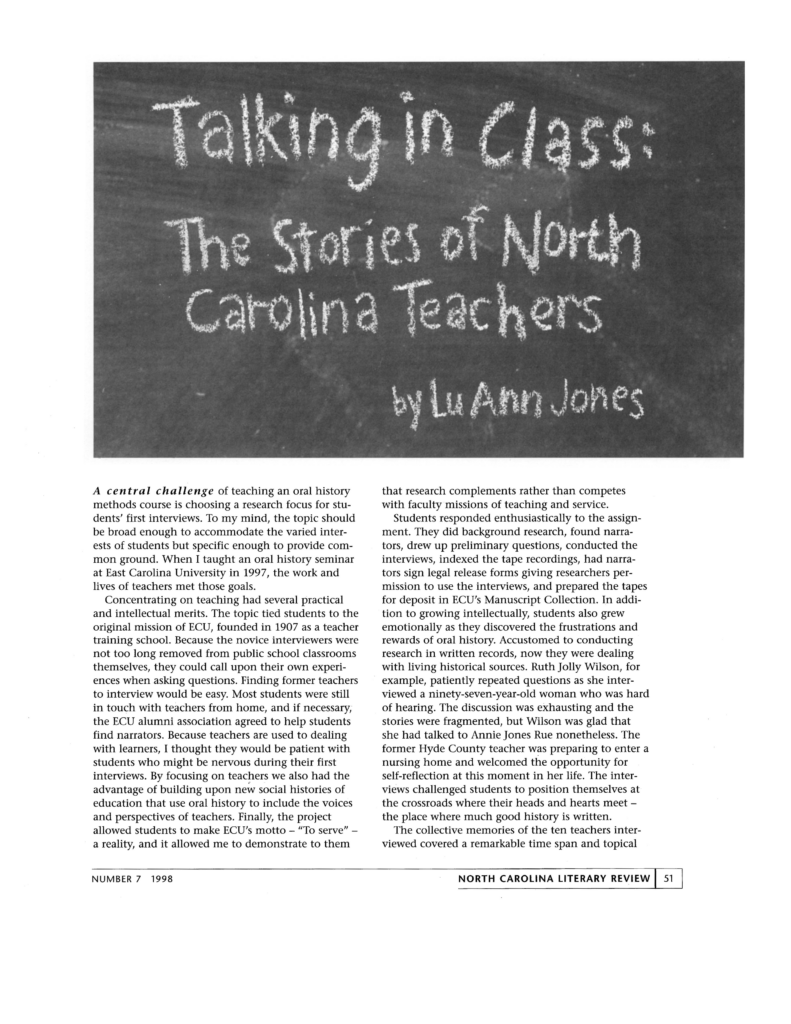Friday from the Archives: “Talking in Class: The Stories of North Carolina Teachers” by Lu Ann Jones from NCLR Issue 7 (1998)
Going back to Editor Margaret Bauer’s very first issue at the helm of NCLR, the issue contains two separate feature sections: one on oral histories in NC and the other on the work of Fred Chappell. To honor Fred, Margaret, and all the teachers in all of our issues, we are highlighting Jones’ article about her class using oral history techniques to document teachers’ stories from across the state.
As long-time supporters of NCLR will recognize, interviews are critically important to the work of “preserving and promoting NC literature” that we do. Jones reported on her 1997 class that “by focusing on teachers we also had the advantage of building upon new social histories of education that use oral history to include the voices and perspectives of teachers.” Allowing teachers to tell their own stories in their own words benefited all who would come in contact with these histories.
“The oldest teacher interviewed was born in 1900, the year that Governor Charles B. Aycock entered office on a pledge to increase and improve North Carolina’s public schools, and she began her career in a rural, two teacher school. Most narrators participated in school consolidation and racial desegregation in the 1960s. The youngest teachers interviewed are still at work in classrooms that reflect the growing cultural diversity of North Carolina. Their stories illustrate how teaching was one of the few middle-class professions open to women during this century; while women’s decisions to teach often seemed “natural,” their work options were socially and culturally defined.”
Teachers included in the article are Inez Cannon Jones, Carma Credle Gibbs, Grace Whitehurst, Ella Tyson Harris and Virginia J. Jones, Annie Farrow Jones Rue, and Jean Rashida Rahman. Jones said, “These stories remind us that we have much to learn from teachers long after they have left the classroom. Just listen.”
We look forward to more writings from and about teachers in North Carolina who are using NC literature in their classrooms, whatever grade they teach. Find out more about this project (originally co-sponsored with Carolina K-12 and NC Humanities) and read all about it in our upcoming Fall ’23 Online issue.
Order the 1998 issue for your collection.
